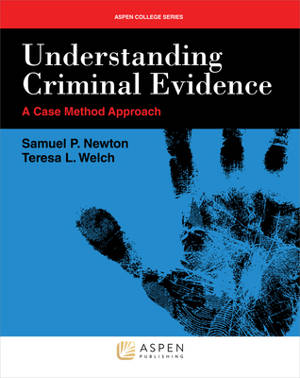
- Retrait gratuit dans votre magasin Club
- 7.000.000 titres dans notre catalogue
- Payer en toute sécurité
- Toujours un magasin près de chez vous
- Retrait gratuit dans votre magasin Club
- 7.000.000 titres dans notre catalogue
- Payer en toute sécurité
- Toujours un magasin près de chez vous
Description
Understanding Criminal Evidence is a carefully designed undergraduate text featuring a case-method approach and focused solely on criminal evidence. Learning the rules from case analysis allows students to apply the material to real world situations, fostering an understanding of the Rules of Evidence. Solid pedagogy makes the material more accessible than a traditional law school casebook text and features end-of-chapter review questions and key terms. Each chapter has a major introductory case that highlights the evidentiary issues. Several sub-cases in chap every chapter illustrate the ramifications of the rules. Trial transcripts and real world problems help students apply the rules to real situations they may face in practice.
Features:
- Case-method approach to criminal evidence
- Case analysis methodology
- students apply the rules to the real world and to real life
- Features a traditional approach
- material designed specifically for undergraduates
- focused solely on criminal evidence
- Sound pedagogy
- end-of-chapter review questions
- key terms
- material more accessible than a traditional law school casebooks
- Cases in each chapter
- one major introductory case highlighting evidentiary issues
- several sub-cases illustrating ramifications of the rules
- Trial transcripts and real world problems help students apply the rules
Spécifications
Parties prenantes
- Auteur(s) :
- Editeur:
Contenu
- Nombre de pages :
- 544
- Langue:
- Anglais
- Collection :
Caractéristiques
- EAN:
- 9781454802259
- Date de parution :
- 05-12-12
- Format:
- Livre broché
- Format numérique:
- Trade paperback (VS)
- Dimensions :
- 201 mm x 251 mm
- Poids :
- 952 g







